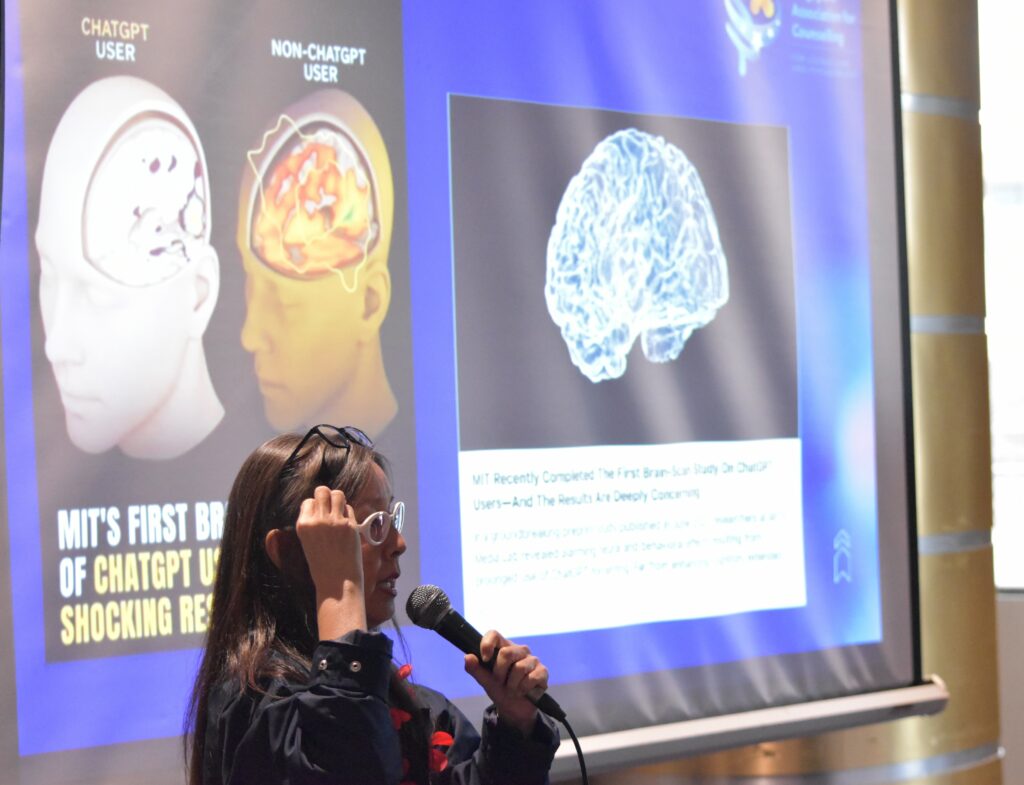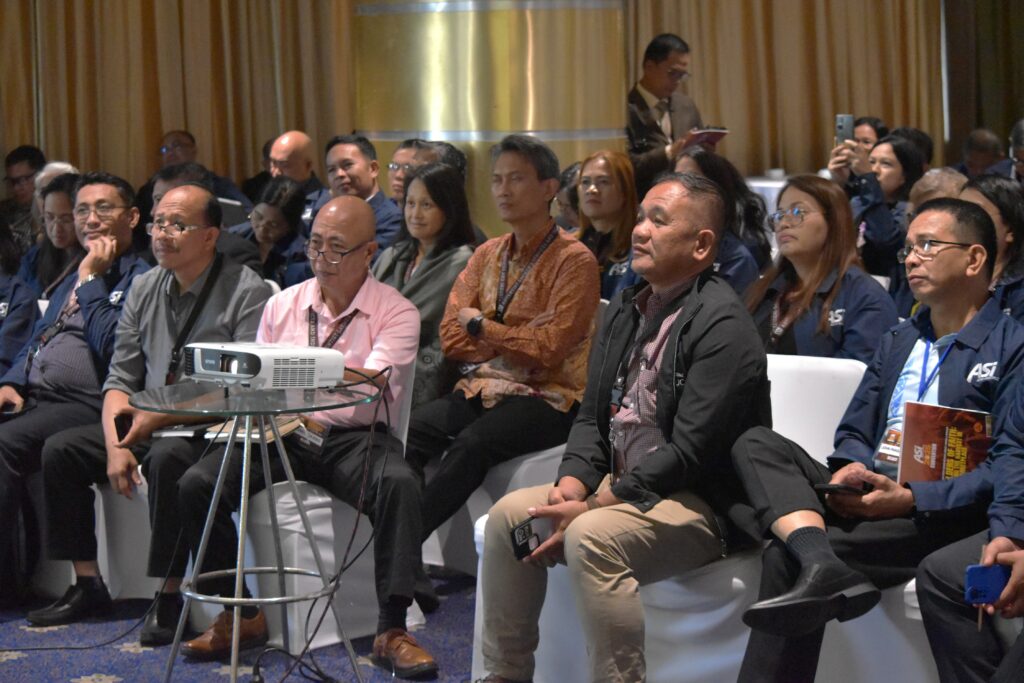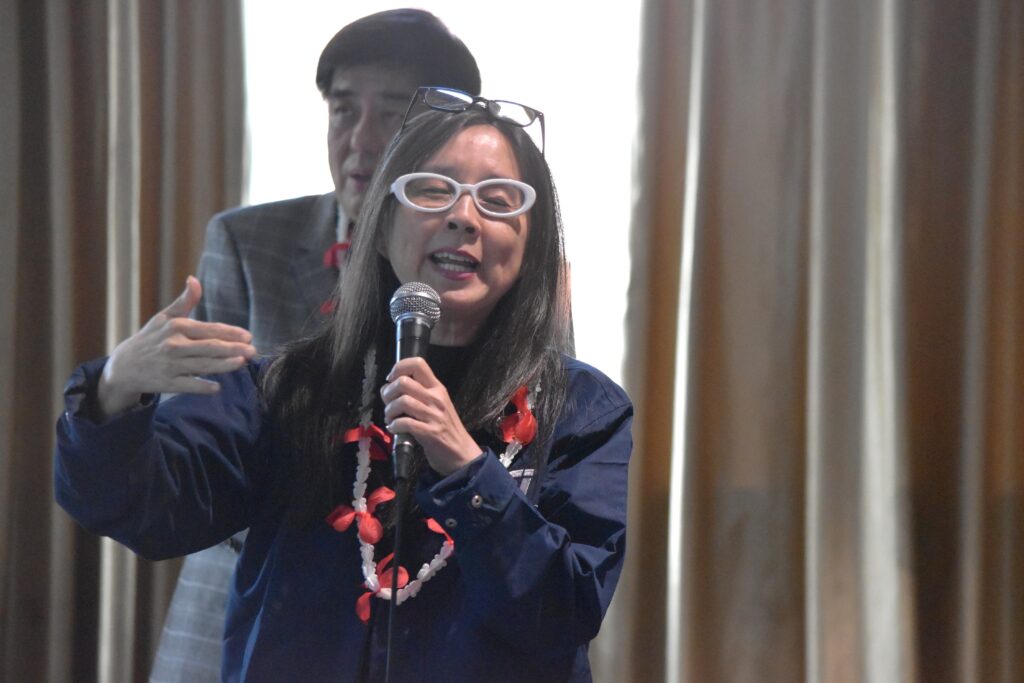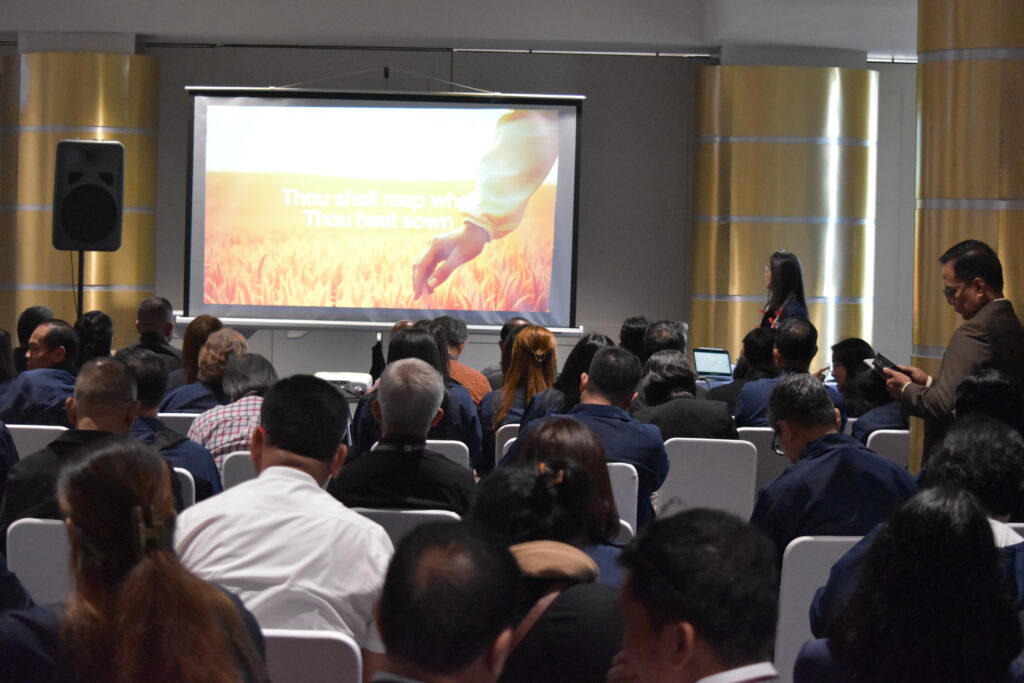AI Is Shrinking Our Brains. What Can We Do About It?
Adventist psychotherapist shares latest discoveries, suggests a way forward.
October 4, 2025 | Thailand | Marcos Paseggi, Adventist Review
When Carolyn Lim, a Seventh-day Adventist psychotherapist in Singapore, was working with young people, she began to notice something seemingly odd. When a new young client would come to see her and she would ask the person what had prompted them to schedule a visit to her office, they would request to read what they had written about their feelings.
After a few similar cases, Lim began to notice that the phrases they were reading to her sounded eerily similar. When she followed up with them, Lim was shocked to discover that those young people had been requesting artificial intelligence (AI) to tell them how they were feeling and what their issues were. “I discovered that they were sharing a shadow of themselves but not their real selves,” she explained.

AI is shrinking our brains, Seventh-day Adventist psychotherapist Carolyn Lim said during the 2025 ASi convention in the Southern Asia-Pacific Division in Phuket, Thailand, August 30. She then suggested what we can do about it. [Photo: Marcos Paseggi, Adventist Review]
As Lim soon found out, those young people were unable to express what they were feeling without AI telling them what to say. She decided that her traditional method of professional engagement was inadequate given the circumstances, and that she had to find another way of helping her clients to open up.
On August 30 Lim led a breakout session during the 2025 convention of the Adventist-laymen’s Services and Industries (ASi) in the Southern Asia-Pacific Division (SSD) of the Adventist Church in Phuket, Thailand. During her presentation Lim shared some of the latest research on the negative effects of AI on human brain development and suggested how to counteract those effects.
Connected but Isolated
Significant mental challenges exist in Singapore, especially among young people, Lim shared. “There are vaping addictions, bullying in school, and increased stress because many are losing their jobs because of AI,” she said. “About 50 percent of graduates can’t currently find full-time employment.”
In addition, Lim explained, young people don’t talk much anymore. “They just communicate through text messages and use ChatGPT to tell them what to communicate.” To her, “this is very scary, because they don’t understand what they don’t know. In Singapore we are becoming more and more isolated. We think we are connected, but we don’t understand each other.”

Convention attendees at a breakout session of the issues raised by the current abuse of AI, especially in young Asians, and how to face some of those challenges [Photo: Marcos Paseggi, Adventist Review]
A Source of Stress and Confusion
Lim also explained that when young people go to AI in search of answers, they get many that are nonspecific and sometimes contradictory. “They see all those answers, and they don’t know which one is the right one, so they get more stressed and confused,” she shared.
The situation is resulting in an extremely anxious and disillusioned generation of youth, one that doesn’t want to get up in the morning to go to work. It is known as “the impostor generation,” because when they do go to work, they smile and act as if everything is fine, Lim explained. “They are extremely conflict-avoidant. Even when they come to session and I start asking them questions about their feelings, they tell me, ‘Can we not go there? Can we talk about it another day?’ They are procrastinators by nature.”
Others just give up and end up staying home, secluded, in their parents’ house. “They stop looking for work, and they don’t have friends,” Lim shared. “And the number [of young people in that situation] is steadily growing across Asia.”
What Scientific Studies Are Showing
Those who are studying human interactions with AI also are seeing troubling patterns, Lim reported. “At first AI is your assistant, but then it becomes your consultant: ‘I’d better check with ChatGPT first,’ Lim illustrated. “After a while AI becomes your partner: ‘I can’t live without you anymore.’ Finally, the question is Can AI become a friend? Or is it even your boss?”

“We know that despite everything that is going on, the Holy Spirit is there, ready to guide us to all truth,” said Carolyn Lim during a breakout presentation in Phuket, Thailand, August 30. [Photo: Marcos Paseggi, Adventist Review]
Lim reported how a study published by the Massachusetts Institute of Technology (MIT) Media Lab in June 2025 revealed “alarming neural and behavioral effects resulting from prolonged used of ChatGPT for writing.” Studies showed a massive drop in brain connectivity (creativity and memory were the most affected): low ownership and robotic writing (soulless), and cognitive debt (decrease in independent thinking and brain engagement). “I have noticed this phenomenon a lot in my young clients,” Lim said. “They don’t know how to think, and because they don’t know how to think, they get confused and more stressed.”
How Do We Move on From Here?
As she witnessed the lack of meaningful communities some of her clients have, Lim decided that she would create community for them. By focusing on small-group therapy, she is now trying to help young people to “put their phones away and just talk among themselves.”
It was not an easy task, Lim acknowledged, because at first “there was a lot of silence.” In fact, she shared, “they would give me a lot of facial expressions and gestures, but no words.” Her job was to help them start interpreting their expressions and gestures and putting them into words. “As the world becomes more silent, the pain and the trauma stay hidden,” Lim explained. “So our job [as therapists] is to help them, through music, art, or other methods, to start opening up and striking up conversations,” she said.

During her presentation Carolyn Lim acknowledged that the solution is not banning AI but “to teach [people] digital responsibility,” because “the discernment component part is extremely important.” [Photo: Marcos Paseggi, Adventist Review]
She explained that her clients, who know she is a Seventh-day Adventist, come from all forms of religious backgrounds—Hindus, Buddhists, and several Christian denominations. “I might never mention Ellen G. White by name, but I certainly paraphrase many of her principles to help young people find direction in life, and they are open to that,” Lim shared. “I feel I am practicing evangelism; perhaps not in a direct way, but doing everything I can to reach them.”
A Tool to Reach Out
Lim has also turned AI into a tool to reach out. Together with her husband, she sometimes takes the summary notes of her group sessions and uses AI to write songs about them. “That way you can keep confidentiality but still share some of the insights you and your clients are getting,” she explained. “Sometimes we do group therapy in the form of songs. It’s not just words but ‘hiding’ discussions, even about traumatic situations, with an AI-generated melody.”
Some clients also use AI for its translation capabilities, Lim explained. In a multilanguage society such as Singapore’s, it is a powerful asset, she acknowledged. “Clients can interact with each other even when they don’t speak the same language,” she said. “So they and we are using AI to their advantage.”
Overall, Lim emphasized, there’s a mission goal in everything she and other Adventist professionals like her do. “We have to use every means available to reach them,” she said. “So the ultimate question I ask them is ‘Who is your boss? Who is controlling you?’ Because we know that despite everything that is going on, the Holy Spirit is there, ready to guide us to all truth.”